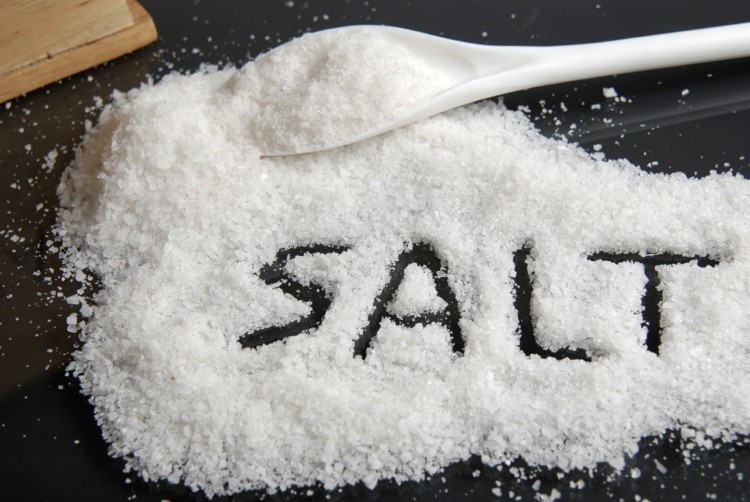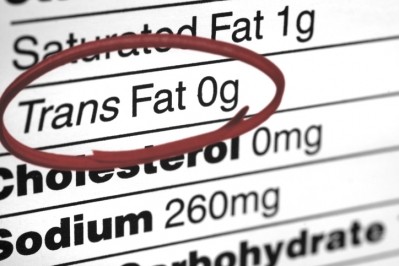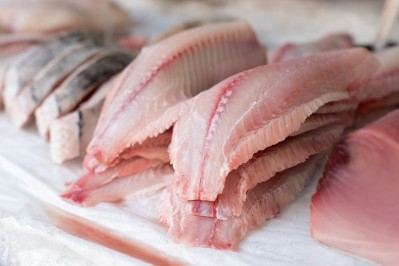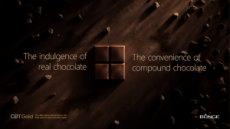Double trouble: Saudi Arabians consuming 100% more than the recommended salt intake

The median sodium intake was found to be 4273mg/day or 10.68g of salt, researchers from King Abdulaziz University and Taibah University reported in the study.
They also assessed and revealed that adult participants in this study had limited salt-related knowledge and poor practices towards reducing salt intake.
The Saudi diet has been influenced by urbanisation, which has caused a shift from a traditional diet to a more westernised diet that is high in salt, added sugar, fat, and calories.
Published in the International Journal of Environmental Research and Public Health, researchers highlighted: “To our knowledge, this is the first study to assess salt-related knowledge and practices among Saudi adults.”
Study design
The cross-sectional study recruited 467 healthy participants aged between 20 and 50 years, from two large cities, Madinah and Jeddah.
Participants were recruited from public places such as malls, parks, Jeddah Corniche (a recreational place) and walking paths. Face-to-face interviews were collected on the spot, collecting data on demographics, anthropometrics (height and weight), blood pressure, salt-related knowledge, and practices related to salt intake.
Pregnant women, diabetics, and people on medications were excluded from the study.
The mean BMI was 25.86 which was categorised as overweight. The mean systolic and diastolic blood pressure readings were normal, 119 and 80.6 mmHg respectively.
To assess dietary sodium intake in the Saudi population, a semi-validated food frequency questionnaire (FFQ) was used.
In terms of assessing salt-related knowledge, a questionnaire consisting of five questions (could high salt intake affect health, hypertension, osteoporosis, stomach cancer and kidney stones) was adapted from a study conducted by Ismail et al (2019). The higher the score, the more knowledgeable the participant was.
For assessing practices related to salt intake, a questionnaire of six items was also adapted from the same study by Ismail et al. Participants were asked on their current salt intake in cooking, use of salt alternatives and fast food consumption. Over 63% of participants consumed fast food more than twice a week.
Limited knowledge and poor practices
The findings revealed that the median salt-related knowledge score was 3 out of 5, whereas the median salt-related practices score was 1 out of 6.
It was also reported that female participants fared significantly better than their male counterparts in the assessment of salt-related knowledge and practices (p<0.001). In addition, lower proportion of female participants reported frequent consumption of fast food (p<0.001).
“The study showed that females made greater effort to reduce sodium levels by reducing salt intake and buying less fast food. In fact, women were found to be more health conscious overall and were more likely to read and follow nutritional recommendations than men,” researchers wrote.
Older participants also scored significantly better when it came to practices related to salt intake (p<0.001).
“Older individuals tend to be more health conscious, and that may be because health-related topics are less important to young individuals. As individuals age, their health declines and health-related topics become increasingly important.”
Limitation and implications
The findings suggested Saudi adults had limited salt-related knowledge as well as poor practices toward reducing salt intake.
Researchers explained: “It is possible that participants were unaware of the upper limits specified for sodium intake or failed to recognise that particular foods contain high levels of sodium, such as fast food.”
In this study, as researchers used convenience sampling, one limitation was the inability to generalise the findings for the overall population of Saudi Arabia.
Another limitation was the use of FFQ, since a 24-hour urine sampling is the gold standard of estimating sodium intake. “The FFQ can provide a good estimate of the sodium intake of a group. In addition, data concerning awareness regarding the food sources of sodium and the ability to read nutrition labels were not collected in this study.”
Researchers concluded that: “Our findings highlight the need of establishing interventions that aim to limit salt consumption by increasing the accessibility of low-sodium food options and improving practices related to salt intake. In fact, increasing public awareness regarding salt intake, using innovative approaches, may enforce the food industry to decrease the sodium content in food products.”
One industry player, UK-based Iposol is planning to enter the Middle East market with its liquid salt. It claims to be able to slash sodium content in breads, processed meats and cheese by 30 to 60%.
Source: International Journal of Environmental Research and Public Health
https://doi.org/10.3390/ijerph17165749
“Knowledge and Practices Related to Salt Intake among Saudi Adults”
Authors: Mahitab A. Hanbazaza and Walaa A. Mumena


















